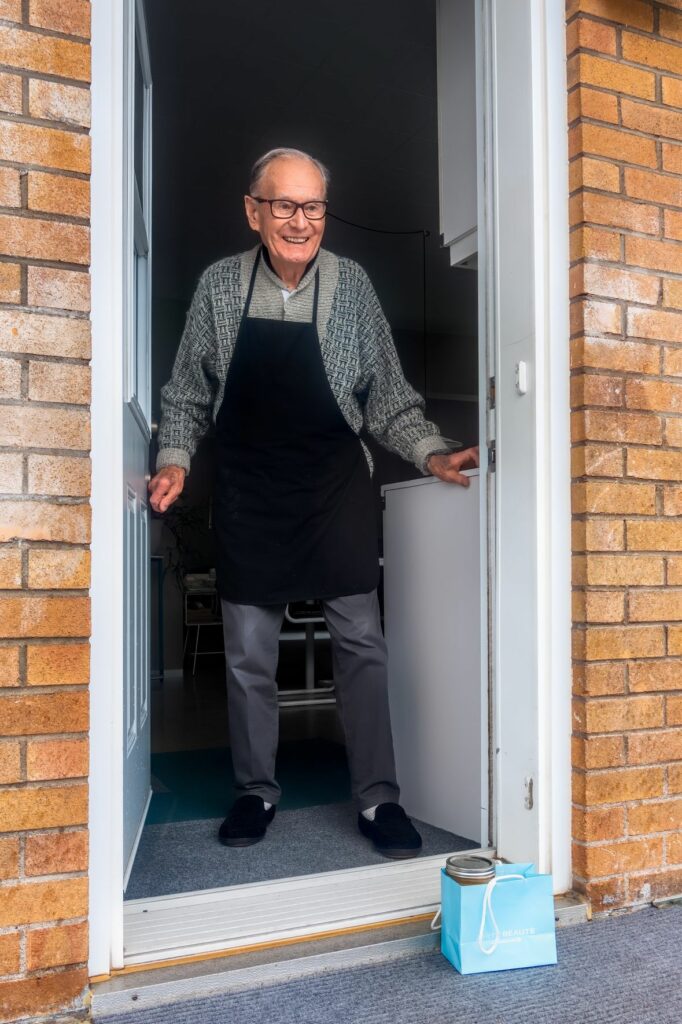Caring for a loved one with dementia is a profound, often challenging journey that impacts the entire family dynamic. It requires patience, understanding, and a toolbox of coping mechanisms to navigate the complexities of the disease. Here, we explore strategies that can aid families in managing the emotional and practical aspects of dementia care and the most effective ways of coping with dementia.
Things to Remember When Coping with Dementia
Taking Breaks
Regular breaks are essential for caregivers to maintain their well-being. Respite care, whether provided by other family members, friends, or professional caregivers, can offer temporary relief, allowing primary caregivers time to rest, pursue personal interests, or simply recharge. Remember, taking care of yourself is not a luxury; it’s a necessity for being able to care for others effectively.

Accepting Help
Accepting help from others can be challenging, but it’s crucial in managing the demands of caregiving. This can include enlisting the assistance of professional caregivers, joining support groups, or accepting offers from friends and family to help with specific tasks.
Recognising that you don’t have to do everything alone can alleviate stress and prevent caregiver burnout.

Having a Carer Assist
Professional carers specializing in dementia care can provide invaluable support, offering expertise in managing the symptoms of dementia and providing strategies to improve the quality of life for both the person with dementia and their caregivers.
They can assist with daily activities, offer companionship, and implement tailored care plans that address the individual’s specific needs.
Informing Children

Children may struggle to understand the changes in a grandparent or family member with dementia. It’s important to explain dementia to children in an age-appropriate manner, focusing on the fact that the loved one’s memory and behavior might change, but the love within the family remains constant.
Encouraging open conversations and involving children in care activities can help them feel connected and less frightened by the changes.
Navigating Public Interactions
Public outings can be challenging for individuals with dementia and their caregivers. Planning ahead, choosing the best times for outings, and carrying an identification card or bracelet for the loved one with dementia can help manage unexpected situations. Educating friends and the wider community about coping with dementia can also foster understanding and support during social interactions.
Collaborating with Doctors
Regular consultations with healthcare professionals specializing in dementia are crucial. They can provide medical advice, adjust treatments, and offer resources for additional support. It’s important for caregivers to communicate openly with doctors about the challenges faced and the effectiveness of care strategies.
Understanding the Legal Process
Addressing legal matters early in the diagnosis is essential. This includes establishing power of attorney, living wills, and other advance directives. Taking these steps ensures that the individual’s wishes are respected and that the family is legally prepared to make decisions on their behalf.
Top tip: getting the correct paperwork in place is an essential way for coping with dementia, for example gaining power of attorney can help loved ones deal with finances and important decisions.
Addressing Driving Concerns

One of the difficult decisions in dementia care involves driving. When it becomes unsafe for the loved one to drive, families need to discuss the issue sensitively, focusing on safety and the availability of alternative transportation options. In some cases, involving the doctor or using formal assessments can help in making the decision.
Creating a Memory-Friendly Home
Adapting the living environment to support the cognitive needs of a loved one with dementia can promote independence and reduce frustration. This can include using labels, removing hazards, and organizing the home to make navigation easier.
Embracing Technology
Various technologies, from simple devices like large-button phones to more advanced GPS tracking devices and home monitoring systems, can support the safety and well-being of someone with dementia, while also providing peace of mind for caregivers.
Help is out there
Coping with dementia is a journey filled with challenges, but also moments of joy and deep connection. Embracing these coping mechanisms can provide families with the strength and resources needed to navigate the complexities of dementia care.
If your family is navigating the journey of dementia care, Care in Kent is here to support you. Our team of compassionate professionals specializes in dementia care, offering the understanding, expertise, and respite you need. Visit Care in Kent to discover how we can help your family through this journey with care, dignity, and respect.
If you enjoyed this article, please follow us on Facebook for more care updates and insights!
You might also like


